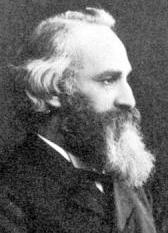Karl Davydov facts for kids
Quick facts for kids
Karl Davydov
|
|
|---|---|
 |
|
| Background information | |
| Birth name | Karl Yulievich Davydov Карл Юльевич Давыдов |
| Born | 15 March 1838 [O.S. 3 March 1838] Goldingen, Courland Governorate, Russian Empire |
| Died | 26 February 1889 [O.S. 14 February 1889] (age 51) Moscow, Imperial Russia |
| Genres | Classical |
| Occupation(s) | Cellist, composer, conductor, pedagogue |
| Instruments | Violoncello |
| Years active | fl. ca. 1850–1889 |
Karl Yulievich Davydov was a super talented Russian musician who lived from 1838 to 1889. He was an amazing cellist, which is someone who plays the cello, a big string instrument. A famous composer named Pyotr Ilyich Tchaikovsky even called him the "czar of cellists" because he was so good! Karl Davydov also wrote a lot of music, especially for the cello. Sometimes his name is spelled a bit differently, like Davidoff or Davidov.
Contents
Life and Music of Karl Davydov
Karl Davydov was born in 1838 in a place called Goldingen, which was part of the Russian Empire back then. His father was a doctor and also played the violin as a hobby. Karl's older brother, August Davidov, became a well-known mathematician and teacher. Karl's nephew, Alexei Davidov, also became a cellist and composer, just like him!
Early Life and Education
When he was young, Karl Davydov first studied mathematics at St. Petersburg University. But he soon decided to follow his passion for music. He went to the Leipzig Conservatory to study composing with a teacher named Moritz Hauptmann.
Becoming a Cello Star
By 1850, Karl Davydov became a full-time cello soloist, meaning he performed concerts by himself. He kept writing music too. In 1863, he started teaching cello as a professor at the Saint Petersburg Conservatory. Later, in 1878, he became the director of the conservatory, which is like being the head of the whole music school! He had many students, including a famous one named Aleksandr Verzhbilovich. Karl Davydov left his position as director in 1886.
Important Connections and a Special Cello
Karl Davydov knew many important composers and musicians of his time. In 1870, a rich art supporter named Count Wilhorsky gave Davydov a very special Stradivarius cello. This cello was made in 1712 by a famous instrument maker named Stradivarius. It's now known as the Davidov Stradivarius. Later, a famous cellist named Jacqueline du Pré owned it, and today, another amazing cellist, Yo-Yo Ma, plays it!
Some composers even dedicated their music to Karl Davydov. For example, Tchaikovsky dedicated his famous Cappricio Italien to him, and Anton Arensky dedicated his first piano trio.
Teaching and Legacy
In 1888, Davydov finished writing a very important book called his "cello school." This book teaches cellists how to play better, focusing on how to use the bow and play high notes on the cello. It's still popular today!
Karl Davydov passed away in Moscow on February 26, 1889, when he was 51 years old. In 2019, a cello competition was started in Moscow in his name, honoring his great contributions to music.
Cello Transcriptions
Karl Davydov also took music written for solo piano by composers like Frédéric Chopin and changed it so it could be played by a cello with piano accompaniment. These changed versions are called "transcriptions." He published albums of these transcriptions, including Chopin's waltzes and mazurkas.
Selected Works
Karl Davydov wrote many pieces of music. Here are some of his most well-known works:
- Opus 5, Cello Concerto No. 1 in B minor (1859)
- Opus 6, Souvenir de Zarizino: 2 salon pieces for cello and piano
- Opus 7, Fantasie from a Russian folk song for cello and orchestra
- Opus 11, Concert Allegro in A minor for cello and orchestra or cello and piano
- Opus 14, Cello Concerto No. 2 in A minor (1863)
- Opus 18, Cello Concerto No. 3 in D major (1868)
- Opus 20, 4 Pieces for Cello and Piano
- No. 1, Sonntag Morgen (Sunday Morning)
- No. 2, Am Springbrunnen (At the Fountain)
- Opus 25, Ballade for cello and orchestra or piano in G major (1875)
- Opus 31, Cello Concerto No. 4 in E minor (1878)
- Opus 35, String Sextet (a piece for six string instruments)
- Opus 37, Suite pour l'orchestre (Suite for Orchestra)
- Opus 40, Quintet for Piano and Strings in G minor (1884)
 | William M. Jackson |
 | Juan E. Gilbert |
 | Neil deGrasse Tyson |

